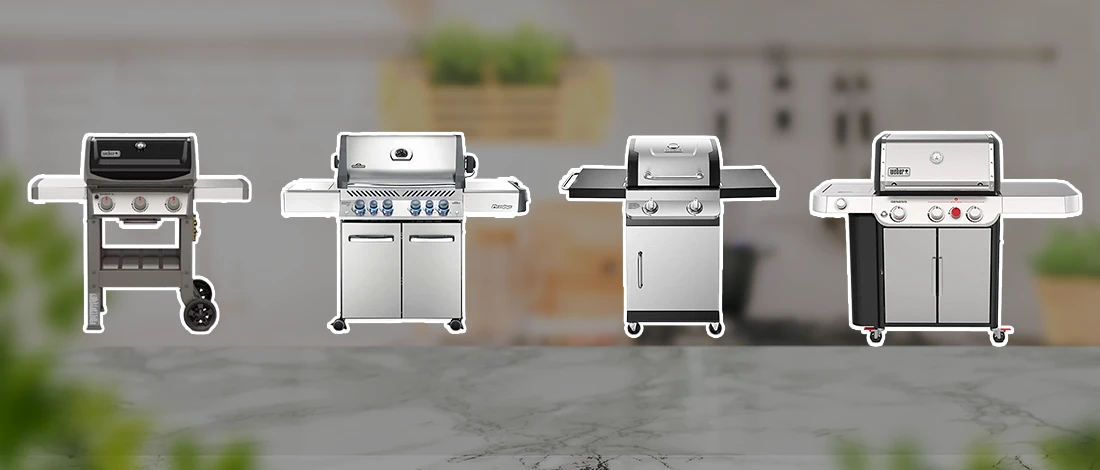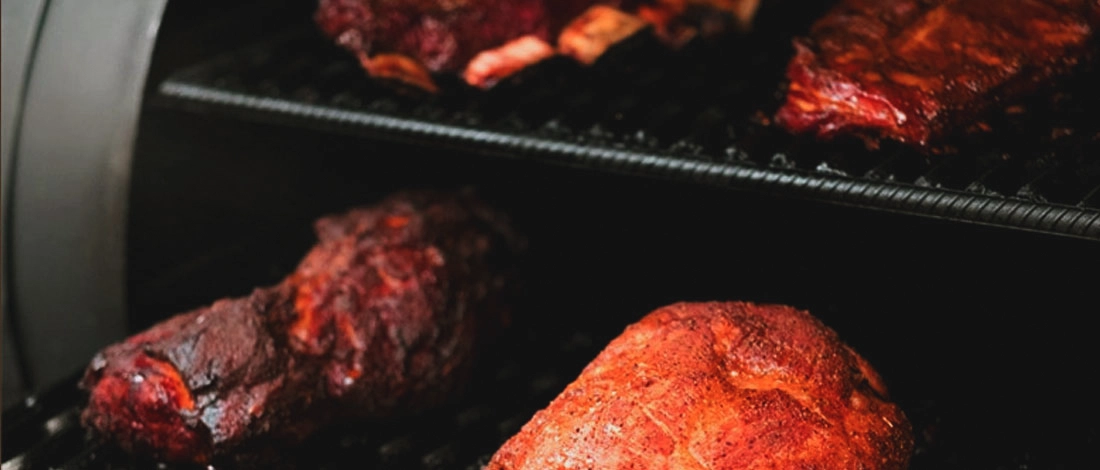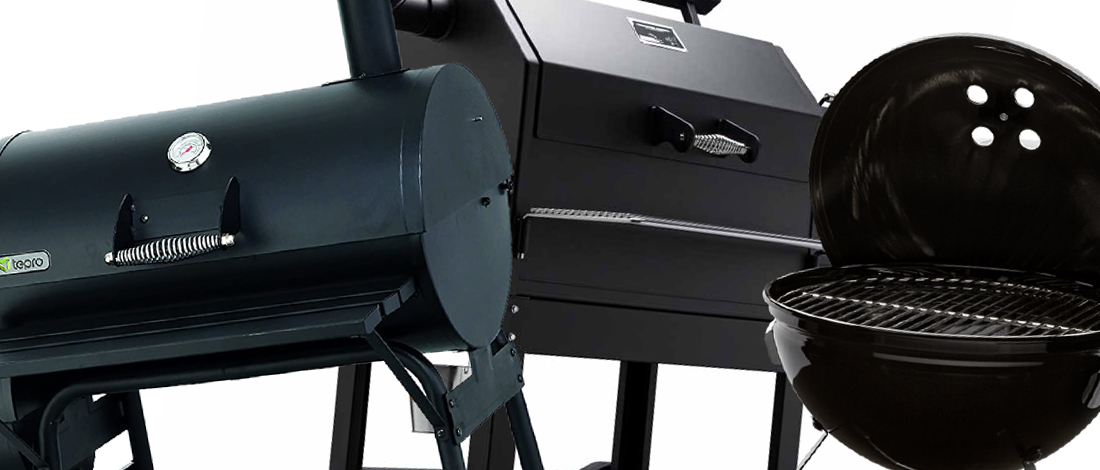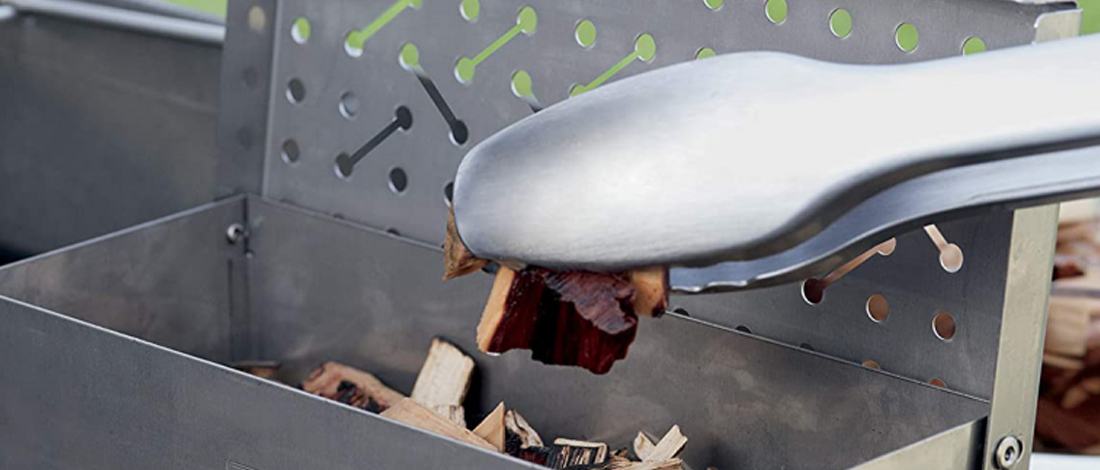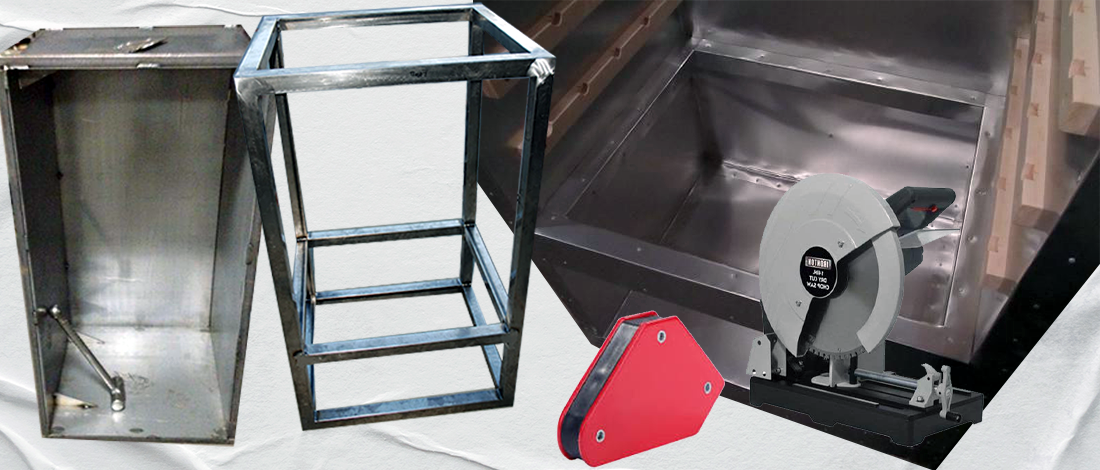Nothing quite says “summer” like throwing a few burgers on the barbecue, grilling up some delicious grub for friends and family. If you’re new to the grilling world, you may be wondering which is better - propane gas or natural gas grills?
There’s been a big debate among pitmasters for years, with natural gas grills slowly overtaking the market. But, why the sudden population growth?
Well, in this article we’re going to cover all you need to know about propane vs natural gas grill. The similarities, the differences, and which one we personally choose to cook our juicy steaks on.
Quick Summary
- Natural gas grills connect to home's supply, offering convenience, while propane grills use cylinders for portability and hotter burn.
- Natural gas is cleaner and less costly over time, but propane grills are cheaper to buy and more energy-efficient.
- The 2022 study in the National Library of Medicine found that using natural or propane gas for barbecuing significantly reduces health risks from PAHs and BTEX emissions compared to charcoal and briquettes [1].
- Natural gas is preferred for home use and eco-friendliness; propane for portability and authentic grill taste.
Natural Gas vs Propane Grills: An Overview
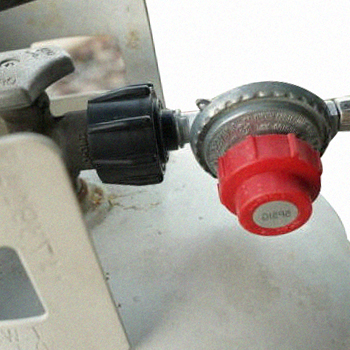
So, is there a difference between a natural gas grill and a propane grill?
In short - yes.
You may have heard the two terms being used interchangeably, however, there are a few distinct differences between both.
They may look quite similar, both use gas and do the same job, but they are two grills in a class of their own.
Like many things in life, the choice between natural gas grills and propane grills comes down to personal preference and how you like your cook.
If convenience is the key to your grilling life, a natural gas grill is the way to go.
You’re getting rid of the middleman (in this case, the tank) and going right to the source. All you have to do is hook her up, strike a match, and cook until the sun comes up.
However, if you like to grill on the go, propane grills may be more up your alley. Not only can you go where the sun goes, but propane grills also cook up a mean sear as well as anything else you throw its way.
When it comes to pricing, natural gas is much cheaper in the long run. This is especially true if you already have a natural gas line at home.
However, the initial purchase of a propane grill is generally cheaper than a natural gas grill, so it depends on which area you’re looking to save money.
Natural Gas Grills
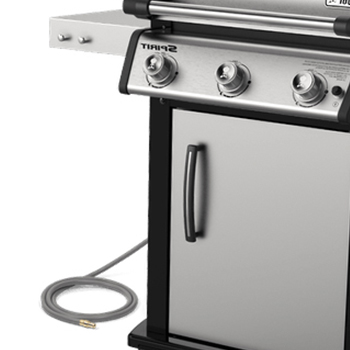
If you’re wondering what a natural gas grill even is, it’s quite similar to your oven at home.
Just like an oven, this natural gas-powered grill hooks up to your natural gas main supply.
The reason we refer to it as natural gas is because that’s exactly what it is.
This fuel is found deep underground, produced when animals and plants die. Their bio-matter is then left to decompose, where it is then exposed to high pressure.
According to the Union of Concerned Scientists, this naturally occurring hydrocarbon is mainly methane, mixed with other gases such as hydrogen, carbon dioxide, and a little bit of helium [2].
This gas is then channeled and captured, sent to purify and stabilize via a processing plant. Then, it is piped directly to your natural gas line, where it is ready to be hooked up to your natural gas grill.
Propane Gas Grills
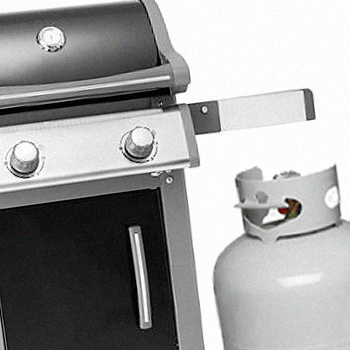
As I’m sure you can tell by now, the biggest contrast between both grills is the gas they use.
Unlike a natural gas grill which is hooked up to a gas line, a propane grill utilizes liquefied gas that has been stored in a portable cylinder or canister.
Propane gas grills use refined and processed gas as opposed to natural.
This refined fuel is made for convenience - making the propane gas grill easily transportable to be used for many things.
Between natural gas grills and propane gas grills, many people choose the latter due to its very low boiling point. This allows the gas to vaporize as soon as it’s released from the propane tanks.
Liquid propane will burn cleaner than other fuels such as gasoline or coal. It also has a much lower carbon emission rate, much like natural gas. Therefore many people choose this over traditional fuels to help fight against global warming.
The Similarities
The pros and cons between natural gas grills and propane gas grills lie within the two types of gases, therefore, let’s look at the similarities between propane and natural gas.
- Carbon Monoxide - Carbon monoxide is virtually undetectable. That’s why it has been deemed the “silent killer.” Both natural gas and propane produce monoxide, that’s why it’s important to grill in an open-air environment that is well-ventilated to avoid too much exposure.
- Low Emission Fuels - Overexposure to any sort of gas is unhealthy and can cause a whole range of health problems. Thankfully, both propane and natural gas are low-emission fuels, therefore it is a much healthier energy source.
- Liquid Form - Both gases can be stored in liquid form, which makes them more convenient compared to other sources.
The Differences
- Natural Gas Costs Less - Per unit volume, propane gas is more expensive than natural gas. However, propane does burn a lot hotter than natural gas, so you’ll end up only using half as much, which is great for your savings.
- Propane Is Heavier - When it comes to safety, the lighter the gas the better. Propane tends to collect on the floor due to its weight, whereas natural gas will rise to the ceiling since it’s lighter. This is much better for proper ventilation.
- Propane Is More Efficient - Propane has a much better BTU (British Thermal Unit) rate, therefore when you compare it to natural gas, you’ll use half of the energy - great for power efficiency.
- Natural Gas Is Cleaner - Natural gas creates lower greenhouse emissions compared to propane, which in turn is great for the environment and causes less risk.
Why We Love Natural Gas Grills

1. Kind To Your Pocket
Natural gas is grills not only cheaper than propane grills, but the cost is also much better than other fuels like charcoal.
Compared to cooking with a propane tank, hooking up your natural gas grill to a gas line will have you paying a third per unit. Therefore if you’re going to install a natural gas line into your home or you already have a line hooked up, it’s much more cost-efficient.
However, if you’re not already connected to the gas mains near your porch, it’ll dint your savings by a couple of thousands.
2. Kinder To The Environment
A natural gas grill is also much more environmentally friendly as opposed to charcoal and oil. Natural gas burns cleaner and produces less than half of the emissions that charcoal does.
If you’re environmentally friendly and worry about pollutants, switching to a natural gas grill may put your mind at ease.
3. Convenience
Many people enjoy cooking their food on a natural gas grill purely for convenience alone.
Since you have a constant flow of gas, you don’t have to worry about your fire losing its heat when your gas tank runs out mid-grill. Your flame will constantly burn without the worry of needing to replace new tanks.
4. Dry Heat
Many people attest to the fact that propane gas, which is derived from liquid form, tends to create a ‘wet heat.’ This heat makes all the difference in the cooking process, changing the consistency and texture of the food - and not for the better.
That’s why pitmasters who value char and a smoky taste will choose a natural gas grill over propane grills.
Why We Love Propane Gas Grills

1. No Upfront Cost
Ignoring the price of the actual unit, a propane gas grill requires no upfront cost as all you have to do is buy some tanks and hook them up to your grill.
If you’re not fortunate enough to have a gas line already hooked up, your supply is too far from your grilling space, it’s going to cost you a lot to get one installed.
So, even though a propane gas grill works out more expensive gas-wise, you’ll pay a lot more to make your gas supply accessible.
2. Energy Efficient
Now, don’t lose me here. I know I said the natural gas line is greener because natural gas produces less CO2. However, propane produces more heat per unit compared to natural gas.
This means heating your propane grill will take much less energy, causing what a professional calls a ‘more authentic grill taste’ compared to natural gas.
3. Portability
Many of us love a good propane grill purely for the authentic feel and connection to the wilderness. That’s why you’ll find most people using their propane grill in the garden, on a beach, or at a campsite.
Sure, charcoal is the go-to for portable barbeques, however, propane has ease of use and a quick light and cook. A propane tank can be taken anywhere, but a main gas supply is a little harder to transport.
Natural gas essentially has you chained to a small portion of your backyard. If the sun moves while you’re grilling, well, you’ll just have to stand in the shade. With propane grills, the world is your oyster.
References:
- https://www.sciencedirect.com/science/article/pii/S0304389422014285?via%3Dihub
- https://www.ucsusa.org/resources/how-natural-gas-formed


